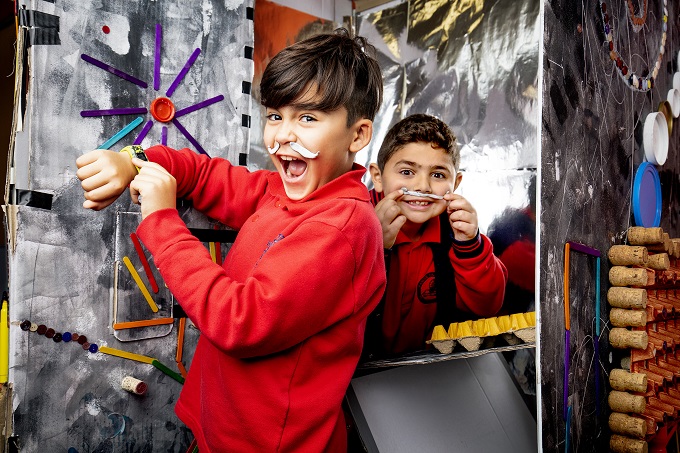Principal calls for ATAR to be overhauled… parents tend to agree

A well-rounded education means more than playing sport, learning a musical instrument and doing well at your studies—today’s school children should also learn and develop ‘life skills’ like thinking outside the square, communication, adaptability and emotional intelligence.
A new survey of 1,000 Victorian parents and teachers shows it is these types of skills that are considered more valuable for students than their final academic result, enabling them to cope with inevitable challenges of social media, bullying and peer pressure while also preparing them for a future employment market of multiple career and job changes.
The survey, conducted by independent Melbourne school, Kilvington Grammar, of parents and teachers from across Victoria, assessed the outcomes, skills and character traits considered most important for children to gain from school as well as concerns for today’s children during their schooling years.
Key findings include:
- The outcome ranked as least important was a high ATAR score, while the most important outcomes included communication skills, having a positive attitude and a strong work-ethic followed by courage, self-esteem and problem solving.
- The character traits most parents and teachers want for children included problem solving, respect, responsibility, confidence, independence and self-esteem.
- Top concerns included coping with being bullied, cyber bullying, peer pressure around drugs and alcohol, anxiety and depression and the negative impact of social media.
- 93% of respondents felt children should be learning and developing ‘life skills’ at school along with core academic subjects.
- 85% agreed that focusing on test scores like NAPLAN and ATAR does not take into account all aspects of a child’s development and capabilities.
- Academic achievement (49%) and High ATAR score (32%) were considered least important in preparing children for the future job market.
Principal of Kilvington Grammar, Mr Jon Charlton, said life skills should be taught explicitly by schools and the ATAR overhauled to take into account a broader range of competencies.
“The dilemma for schools is that key skills such as reading, writing and maths are specific, teachable abilities that can be defined and measured. By contrast, life skills such as adaptability, problem solving, creativity, collaboration and communication are less tangible and measurable. In today’s world these skills are more vital than ever—children should be learning them from a young age and we need to find a way to measure them alongside the ATAR,” Mr Charlton said.
Kilvington Grammar launched The Character Initiativein 2016 to introduce students as young as four to key traits and skills they would need to thrive in life. Each semester, a new character trait is actively incorporated into the school curriculum.
“By embedding character traits such as gratitude, resilience, adaptability and courage into the school culture and curriculum we are reinforcing why these characteristics are important for children in terms of their relationships at school and at home, as well as managing challenges and their general approach to life,” Mr Charlton said.
“Many of our character traits are the life skills being demanded by employers of the 21stCentury. This survey highlights parents’ expectations for schools to ensure their kids are equipped to handle the pressures of multiple career and job changes. Ironically, their ATAR score was of least concern,” he added.
Click here to view Kilvington Grammar’s video: Building Character and Skills for the Future Workforce: https://youtu.be/UWQ_FvKnTUw







